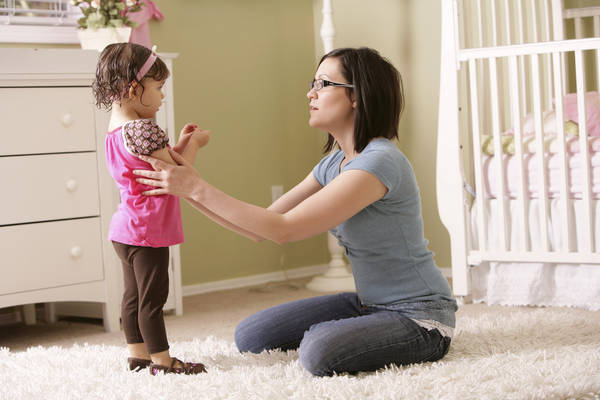
Q & A with Dr Roopa Srinivasan: Must-try techniques to discipline your toddler – Part 1
23 Nov 2015 | 3 min Read
Roopa Srinivasan
Author | 3 Articles
How to discipline a toddler?
Discipline basics – Children need to be disciplined to learn and grow. Disciplining, however, does not mean getting the child to do things or NOT do things out of fear of being hit, yelled at and being punished.
Look back at your growing years. When was the last time you learnt effectively when you were under stress or were anxious? You may remember the adult caregiver who hit you or punished you but may not remember what they were trying to teach you at that time. Hitting and other forms of physical punishment damage a child’s developing brain making them react unfavorably to learning situations in future.
How do you strike a balance then?
Have few rules in the house that you implement consistently across family members:
If you have a laundry list of rules you are going to lose track of them and be consistent in how you implement it. Remember your child is watching and learning from you. A child understands what is allowed and what’s not based on how you react and if she has you and other family members being inconsistent, it confuses her.
For example, little Sasha never gets to drink fizzy drinks. However, once when there were guests at home and mom wanted to keep her quiet she was allowed a little sip. In Sasha’s mind, now it is ok to ask for a fizzy drink when guests are over! This sets a trend for tantrums and crying for what she wants every time she senses mom wants to be left alone. While this may seem manipulative to adults, this is how a sense of right and wrong or limits emerges in a child’s head.
Do not categorize everything as bad behavior- Important development milestones aren’t sudden; kids must practice and learn, fail and try again. All of this is often messy and frustrating—but incredibly necessary. For instance, two-year-olds are made to test boundaries; trying to do things their own way or trying something new is a key developmental behavior at this age. Just because they attempt a change in routine, doesn’t mean they’re willfully disobeying.
Do pick your battles. Hearing “no” or “don’t” too many times wears out the meaning and can inhibit spontaneity and curiosity. Pick one or two main behaviors you want to teach your child. Once he or she has mastered them, then tackle another issue, etc.
What could be the real alternatives to punishment? Or getting the child to listen without creating fear? How to reward good behavior?
The importance of ‘time-ins’. That is, when kids are good, praise them for it. Phrases like, “I like how you are sitting quietly with that book,” or “I like how you stood still while we waited in line,” are specific and help the child learn what behavior to replicate. Sasha is learning what her mom /dad expects her to do in this scenario as opposed to being told- “don’t jump on the sofa’ or “stop running around”. The latter examples don’t unfortunately tell her what to do instead.
To know more from a leading developmental pediatrician, read the series: Terrible twos, Must try Techniques to discipline your toddler – Part2, The Helpful Guide to managing your young toddler’s behaviour
A


Suggestions offered by doctors on BabyChakra are of advisory nature i.e., for educational and informational purposes only. Content posted on, created for, or compiled by BabyChakra is not intended or designed to replace your doctor's independent judgment about any symptom, condition, or the appropriateness or risks of a procedure or treatment for a given person.
